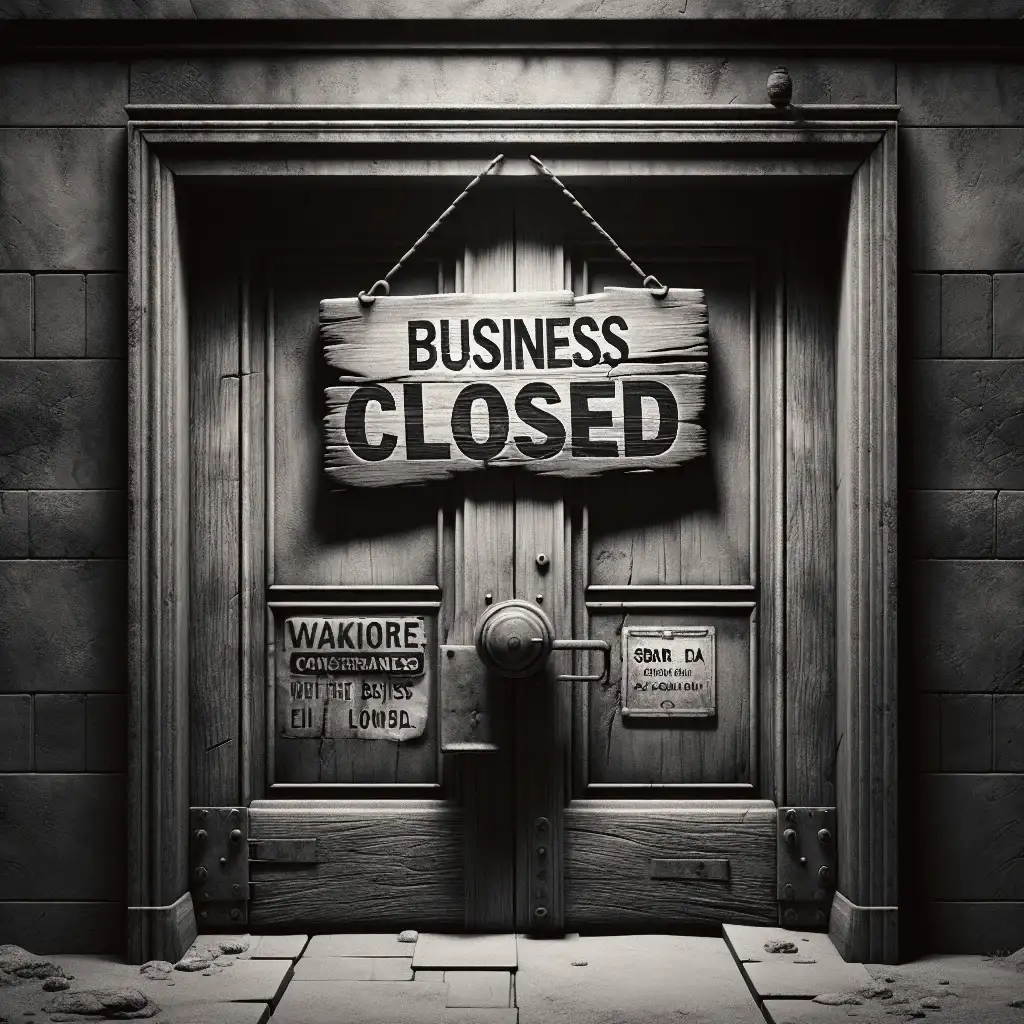Have you ever wondered what happens to your SBA EIDL loan if your business closes? It’s a question that many small business owners may have on their minds, especially during challenging times. In this article, we will explore the fate of your SBA EIDL loan in the event of business closure. Whether you’re looking for information or simply curious about the implications, read on to discover what happens when the doors to your business shut and how it impacts your loan.
What Happens To SBA EIDL Loan If Business Closes?
Understanding SBA EIDL Loan
The Small Business Administration (SBA) offers Economic Injury Disaster Loans (EIDL) to businesses affected by declared disasters, such as the COVID-19 pandemic. These loans aim to provide financial assistance to cover necessary operating expenses that a business would have been able to handle under normal circumstances. It is essential to understand the terms of an SBA EIDL loan to determine what happens if your business closes.
Loan Repayment Terms
SBA EIDL loans typically have favorable repayment terms compared to traditional loans. The standard term for these loans is 30 years, with an interest rate of 3.75% for small businesses and 2.75% for nonprofit organizations. The repayment terms allow businesses to have manageable monthly payments over an extended period.
Impact of Business Closure on SBA EIDL Loan
If your business closes after obtaining an SBA EIDL loan, you will still be responsible for repaying the loan according to the agreed-upon terms. Business closure does not absolve you from meeting your financial obligations. However, the SBA does offer several options to handle loan repayment in such situations.
Loan Repayment Options
- Full Loan Repayment: The most straightforward option is to continue making regular loan payments until the loan is fully repaid. This approach ensures that you fulfill your commitment and avoid any potential negative consequences.
- Settlement or Compromise: In certain cases, the SBA may consider accepting a lesser amount than the total outstanding balance as a final settlement. This option requires negotiation and approval from the SBA, and it may have implications for your credit score and future borrowing potential.
- Asset Liquidation: Selling off business assets can help generate funds to repay the SBA EIDL loan. By liquidating assets, you can use the proceeds to reduce or eliminate the outstanding loan balance. However, this option may not be viable for every business, as not all assets are easily marketable or may not yield the desired amount.
- Bankruptcy: If your business is facing insurmountable financial challenges, bankruptcy may be an option to consider. However, it is important to consult with a bankruptcy attorney to understand the potential impact on the SBA EIDL loan and any other debts your business may have.
Eligibility for SBA EIDL Loan Discharge
While business closure alone does not discharge an SBA EIDL loan, there are certain circumstances where the loan may be discharged. These circumstances generally involve significant hardship or events that render the borrower incapable of repaying the loan.
- Death of Borrower: If the borrower passes away, the SBA EIDL loan may be discharged. The borrower’s estate would need to provide appropriate documentation and satisfy the necessary requirements for loan forgiveness.
- Disability of Borrower: If the borrower becomes permanently disabled and is unable to work or generate income, there may be a possibility of loan discharge. Again, documentation and supporting evidence would need to be provided to the SBA.
- Cancellation Provision: The SBA may have provisions in place that allow for loan cancellation under specific circumstances. It is crucial to review the loan agreement and consult with the SBA to determine if your situation qualifies for loan discharge under this provision.
- Discharge in Bankruptcy: If your business files for bankruptcy and the SBA EIDL loan is included in the bankruptcy proceedings, there is a possibility that the loan may be discharged, depending on the outcome of the bankruptcy case.
Impact on Personal Credit Score
The closure of your business and the potential challenges in repaying your SBA EIDL loan can have an impact on your personal credit score. Late payments or defaulting on the loan can lower your credit score, making it more challenging to secure financing in the future. It is crucial to prioritize loan payments and explore repayment options to minimize the negative impact on your credit history.
Seeking Professional Advice
Given the complexities involved in business closures and loan repayment, it is advisable to seek professional advice from accountants, financial advisors, or attorneys specializing in small business matters. These professionals can guide you through the options available, help you navigate the process, and make informed decisions based on your unique circumstances.
Conclusion
While the closure of your business does not absolve you from repaying an SBA EIDL loan, it is crucial to understand the available options and take appropriate steps to manage your financial obligations. Whether you choose to repay the loan in full, negotiate a settlement, liquidate assets, or explore bankruptcy, seeking professional advice and understanding the implications on your credit score are essential. By addressing the situation proactively and responsibly, you can navigate the challenges associated with an SBA EIDL loan after business closure and take the necessary steps toward financial stability.

Hi there! I’m paydayfxloan, an author and the driving force behind PayDayFxLoan. I am passionate about empowering individuals on their financial journey, and that’s exactly what this website is all about. With a focus on loan insights, I provide comprehensive guides and resources that will help you navigate the loan landscape with confidence. Whether you’re looking to understand different loan types or seeking advice on managing repayments, I’m here to equip you with the knowledge you need for a secure financial future. Come join me as we explore the world of loans and empower ourselves to make informed financial decisions.

